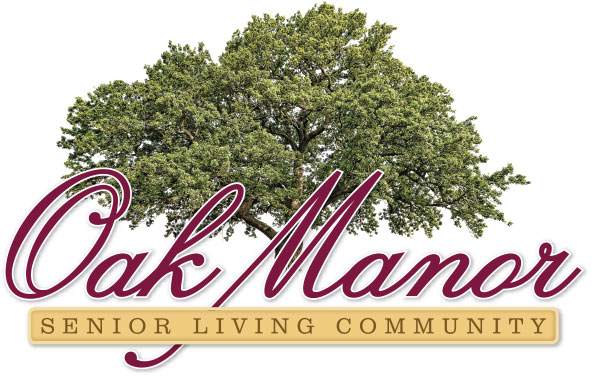As we age, our bodies and minds go through many changes. While some of these changes are a natural part of the aging process, others can be signs of more serious issues, such as anxiety and depression.
Anxiety and depression are common mental health disorders that can affect people of all ages, including seniors. In fact, according to the World Health Organization, around 15% of adults over the age of 60 suffer from a mental disorder, with anxiety and depression being the most common.
In this article, we’ll explore the signs of anxiety and depression in seniors considering assisted living in Largo, FL, as well as the importance of addressing these issues and seeking help.
What is Anxiety and Depression?
Before we dive into the signs of anxiety and depression in seniors, let’s first define these mental health disorders.
Anxiety
Anxiety is a feeling of worry, fear, or unease that can be triggered by a specific event or situation. It is a normal human emotion and can even be beneficial in certain situations, such as helping us prepare for a big presentation or exam.
However, when anxiety becomes excessive and interferes with daily life, it can be classified as a disorder. Symptoms of anxiety can include restlessness, difficulty concentrating, muscle tension, and sleep disturbances.
Depression
Depression is a mood disorder that causes persistent feelings of sadness, hopelessness, and loss of interest in activities that were once enjoyable. It can also cause physical symptoms such as changes in appetite, sleep disturbances, and fatigue.
Depression can be triggered by a variety of factors, including genetics, life events, and medical conditions. It is important to note that depression is not a normal part of aging and should not be ignored or dismissed as a natural part of getting older.
Signs of Anxiety and Depression in Seniors
Anxiety and depression can manifest differently in seniors compared to younger individuals. This can make it difficult to recognize the signs and symptoms in older adults. Here are some common signs of anxiety and depression in seniors to look out for:
Changes in Mood
One of the most common signs of anxiety and depression in seniors is a change in mood. This can include feelings of sadness, hopelessness, irritability, or anger. Seniors may also become more withdrawn and less interested in activities they once enjoyed.
Physical Symptoms
Anxiety and depression can also cause physical symptoms in seniors, such as headaches, digestive issues, and chronic pain. These symptoms may not always be recognized as signs of a mental health disorder, leading to a delay in seeking help.
Changes in Sleep Patterns
Sleep disturbances are common in both anxiety and depression. Seniors may have trouble falling asleep, staying asleep, or experience changes in their sleep patterns. They may also feel tired and fatigued during the day.
Changes in Appetite
Anxiety and depression can also affect appetite in seniors. They may experience a loss of appetite, leading to weight loss, or an increase in appetite, leading to weight gain. Changes in appetite can also be a side effect of certain medications, so it is important to consult a doctor if this occurs.
Difficulty Concentrating
Seniors with anxiety and depression may have difficulty concentrating or making decisions. This can be mistaken for memory problems or dementia, but it is important to consider mental health as a potential cause.
Social Isolation
Seniors with anxiety and depression may withdraw from social activities and isolate themselves from friends and family. This can be due to feelings of shame or embarrassment, or a lack of energy and motivation.
Physical Health Issues
Anxiety and depression can also have a negative impact on physical health. Seniors with these mental health disorders may experience a decline in overall health, as well as an increased risk of developing chronic conditions.
Why is it Important to Address Anxiety and Depression in Seniors?
Anxiety and depression can have a significant impact on a senior’s quality of life. They can also increase the risk of developing other health issues, such as heart disease, stroke, and dementia.
Furthermore, seniors may be less likely to seek help for mental health issues due to stigma or a lack of awareness about available resources. This can lead to a delay in diagnosis and treatment, making it even more important to address these issues in seniors.
Seeking Help for Anxiety and Depression in Seniors
If you or a loved one is experiencing symptoms of anxiety or depression, it is important to seek help from a healthcare professional. They can provide a proper diagnosis and recommend a treatment plan that may include therapy, medication, or a combination of both.
It is also important to address any underlying physical health issues that may be contributing to anxiety and depression. This can include managing chronic pain, improving sleep habits, and addressing any medication side effects.
How to Support Seniors with Anxiety and Depression
If you have a senior in your life who is struggling with anxiety or depression, there are ways you can support them and help them manage their symptoms.
Encourage Open Communication
Encourage your loved one to talk about their feelings and listen without judgment. Let them know that it is okay to seek help and that you are there to support them.
Help Them Stay Active
Physical activity can have a positive impact on mental health. Encourage your loved one to engage in activities they enjoy, such as walking, gardening, or dancing.
Provide Emotional Support
Seniors with anxiety and depression may feel isolated and alone. Make an effort to spend time with them and provide emotional support. This can include going for walks, watching a movie, or simply having a conversation.
Educate Yourself
Educate yourself about anxiety and depression in seniors and the available resources for support. This can help you better understand what your loved one is going through and how you can best support them.
Takeaways
Anxiety and depression are common mental health disorders that can affect seniors. It is important to recognize the signs and symptoms and seek help from a healthcare professional. With proper diagnosis and treatment, seniors can manage their symptoms and improve their overall quality of life. By providing support and understanding, we can help our loved ones navigate through these challenges and live a fulfilling life in their golden years.

